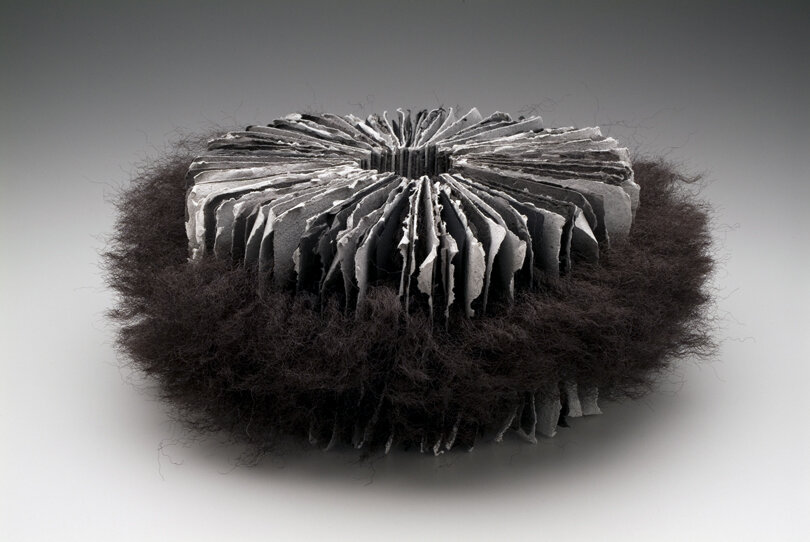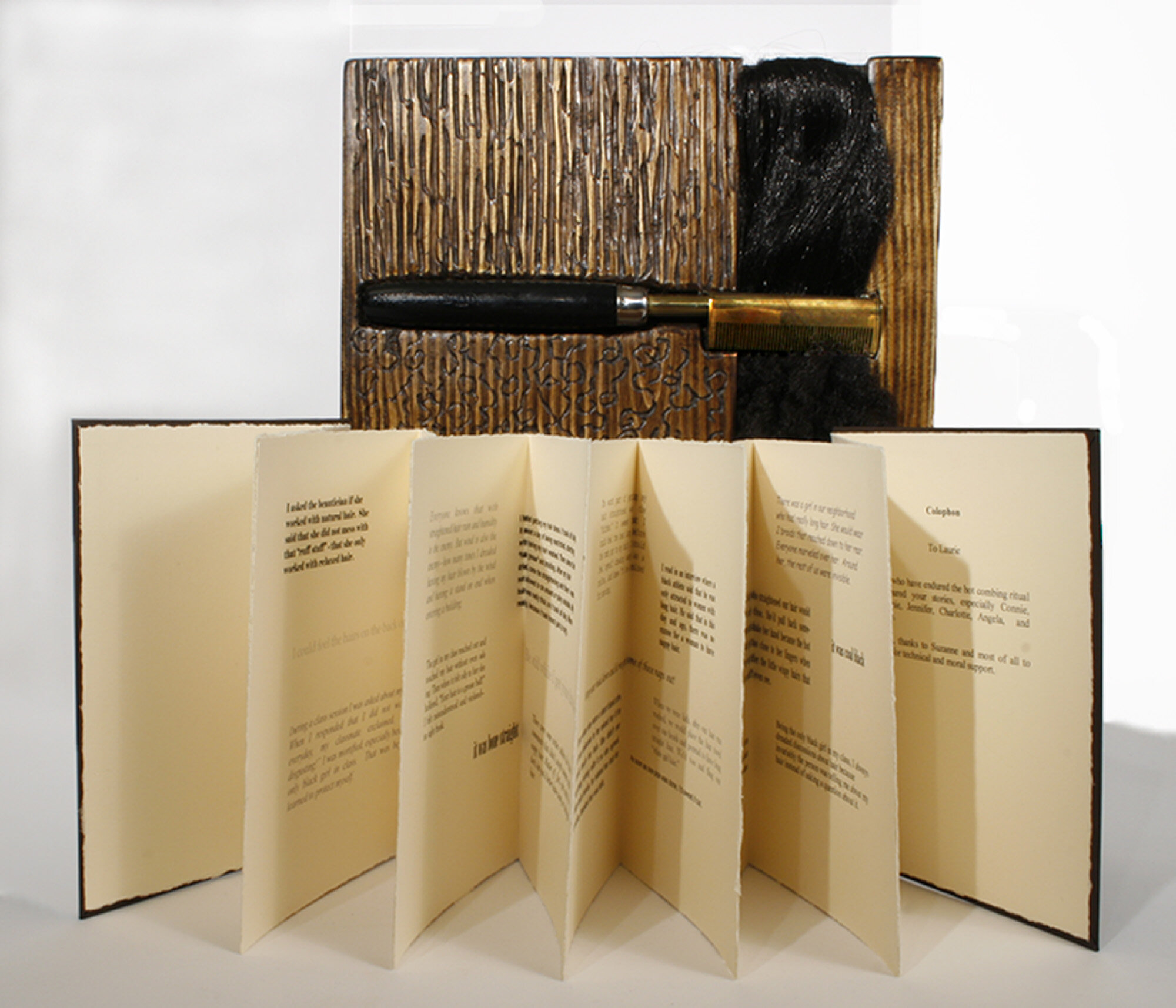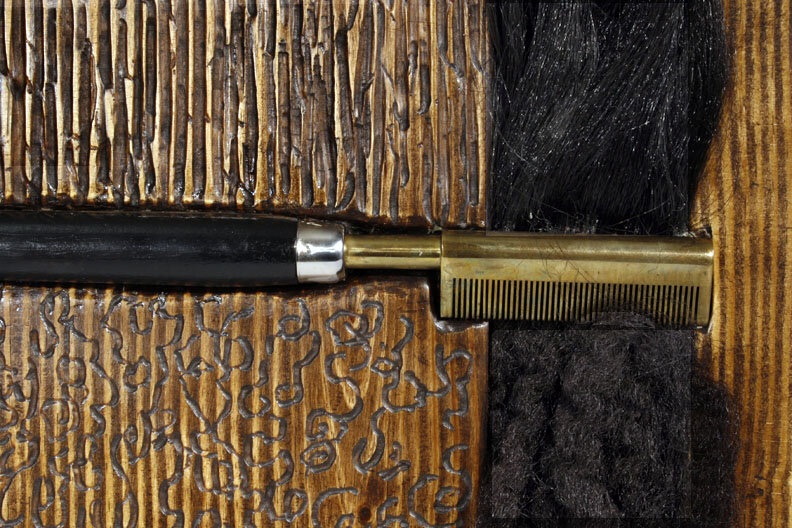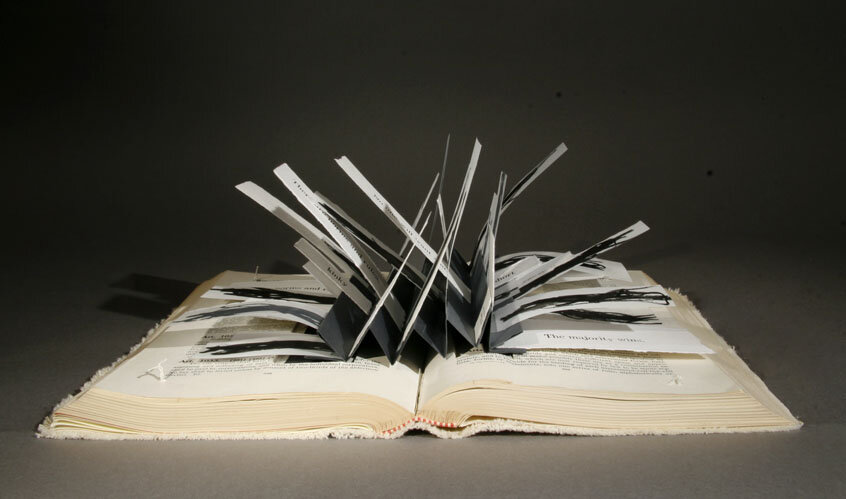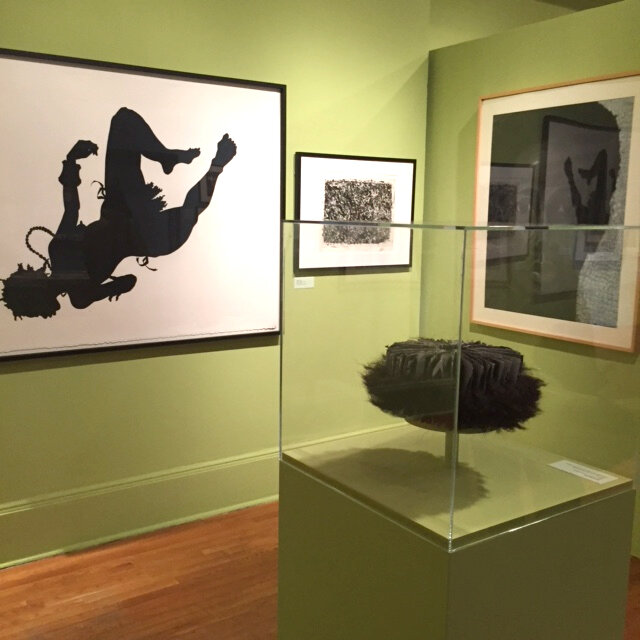
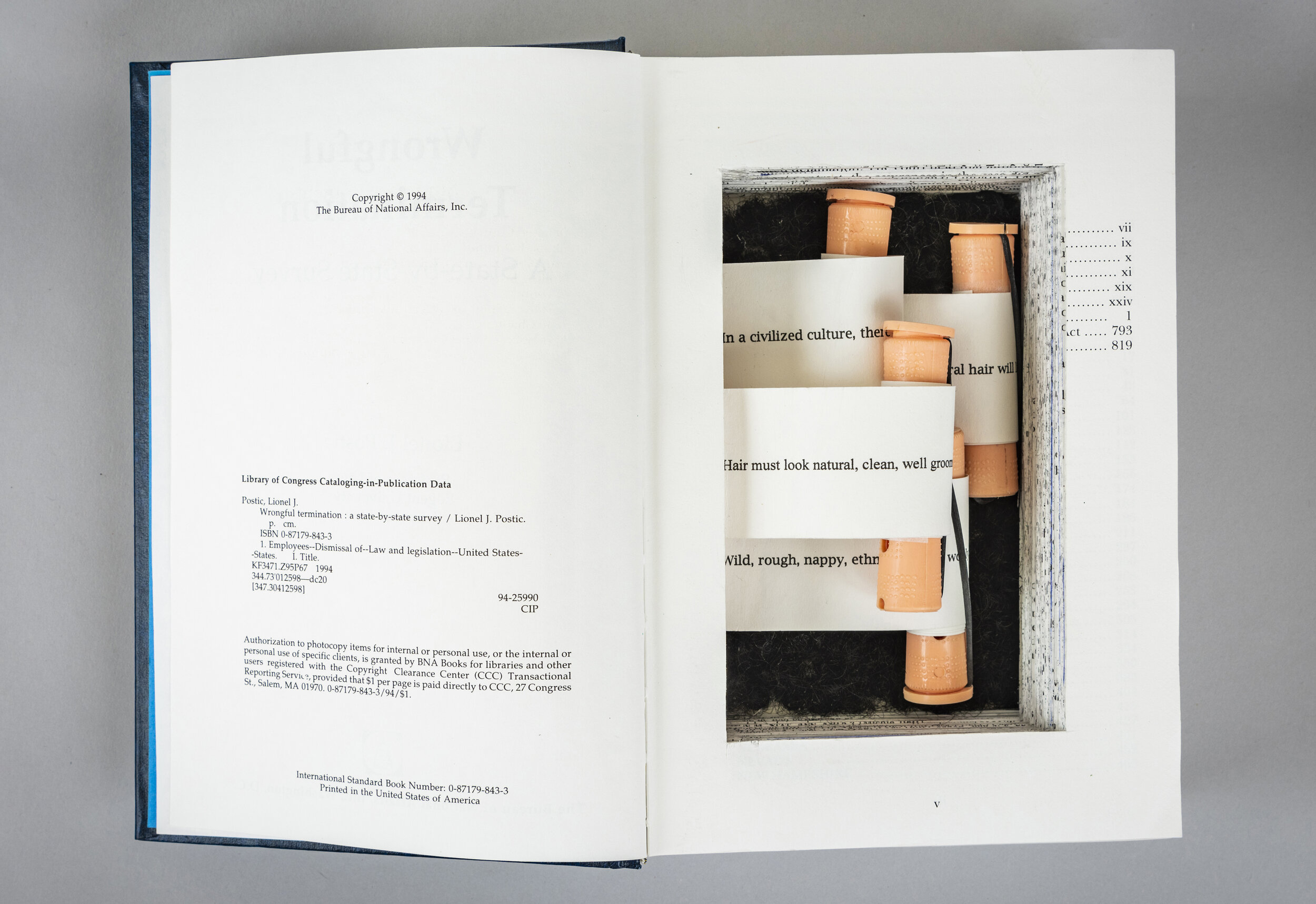

Wrongful Termination addresses race-based discriminatory practices. Starting in the 1980’s, multiple suits have been filed against employers, schools, and other agencies by people of color (primarily women) who were fired, passed over for promotion or hiring, or sent home for wearing their natural hair. Wrongful is a unique altered book featuring two original poems and texts from newspaper editorials.
In 2019, California and New York became the first and second states respectively, to pass the Creating a Respectful and Open World for Natural Hair or CROWN Act, to end race-based hair discrimination. According to a study sponsored by Dove:
A Black woman is 80% more likely to change her natural hair to meet social norms or expectations at work.
Black women are 50% more likely to be sent home or know of a black woman sent home from the workplace because of her hair.
More information about the CROWN Act can be found here. The CROWN Act is not about feeling good about oneself or one’s body, but about fighting discriminatory practices based on race.
A special thanks to Annie Howe, for the warm welcome she extended to her Baltimore studio earlier this year. Annie introduced me to a new knife and insisted that I bring home the samples that were used to carve out the book. I had so much fun at our visit that I didn’t think to take photos!
